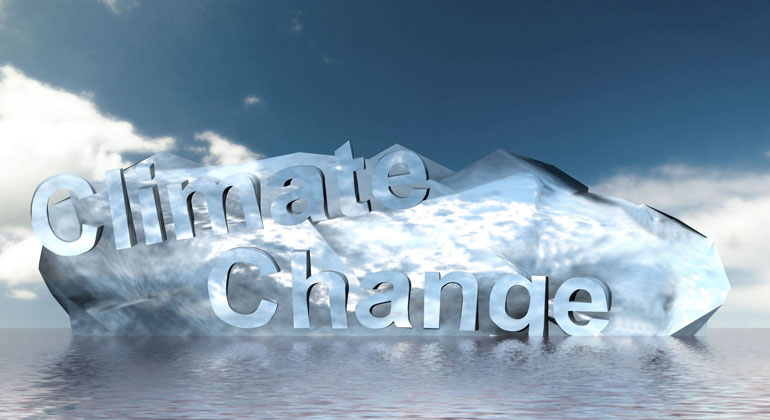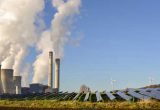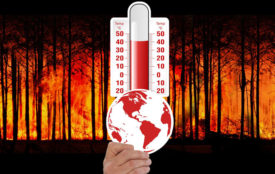Climate change does not take a break
The coalition agreement of the traffic light government says: “Achieving the climate protection goals of Paris is our top priority.”
Does this sentence still apply in wartime, when Climate Minister Habeck has to keep coal-fired power plants running longer to supply energy, and has gas and coal purchased all over the world, even from the worst human rights violators?
The new report of the Intergovernmental Panel on Climate Change sets all alarm bells ringing. Things are getting even worse than we wanted to believe so far. We are heading for the abyss, but still accelerating in the wrong direction. The “Fridays for Future” movement can only despair when young people think about their future.
UN Secretary General António Guterres says of the new climate report, “We’re on the fast track toward climate disaster.” The pace of green energy development needs to triple, he says. Many climate scientists say the pace of expansion, energy conservation and energy efficiency must increase fivefold.
German climate policy has also failed miserably so far: we have been a total failure, especially in the transport sector. Fuel-guzzling SUVs are still celebrating record sales in this country, and we are still the only industrialized country in the world without a speed limit. That is embarrassing, embarrassing and irrational.
But doesn’t the world have very different worries in times of war? Coverage of the latest disaster report in German media was downright puny compared to the Ukraine war.
Robert Habeck tells the Süddeutsche Zeitung that his people are currently working 16-18 hours a day to solve both the problem of dependence on Putin’s fossil fuels and the giant problem of climate change. Says Habeck’s state secretary Patrick Graichen: “The challenge is not to lose sight of the original agenda.”
Coal phase-out later?
But that raises the question: can the coal phase-out, as envisioned in the coalition agreement “ideally” by 2030, actually be achieved in these new wartime times? “Yes, of course,” says Graichen, “nothing changes at all.” So does this crisis also have its chance? And what might it look like?
Now almost all parties in the Bundestag see that independence from Russia and the climate crisis, as well as security, are essentially the same problem. The solution can only be to switch to renewable energies as quickly as possible. The less fossil energy we need, the better for the climate, for security and for our freedom. Since the sun and wind now also supply the cheapest energy, the switch should succeed far more quickly than has long been assumed. Even FDP leader Christian Lindner now knows that renewable energies are “freedom energies”. And peace energies anyway.
Tesla speed in Germany?
EU leader Ursula von der Leyen calls climate protection and the EU’s “Green New Deal” a “moon program.” “Suddenly everyone wants to go to the moon,” mocks the Süddeutsche. And the German government is just proving that the new “moon landing” can happen faster than long assumed.
Within a few days, the traffic light coalition has put together the “Easter package”: More wind turbines, more solar panels, more heat pumps, more grid lines. On April 6, the federal cabinet decided that Germany should be 100 percent renewable in electricity by 2035.
That’s good: Because climate change doesn’t care about geopolitics. And even in times of war, it doesn’t take a break. The EU has just decided: No more coal from Russia. Even better, soon there will be no more oil or gas from Russia either.
The three Baltic states have already shown how this can be done. They have made themselves independent of all fossil sources in Russia. They were less naive than Germany. They view energy policy in the context of national security.
Source
Franz Alt 2022 | Translated with www.DeepL.com/Translator (free version)








